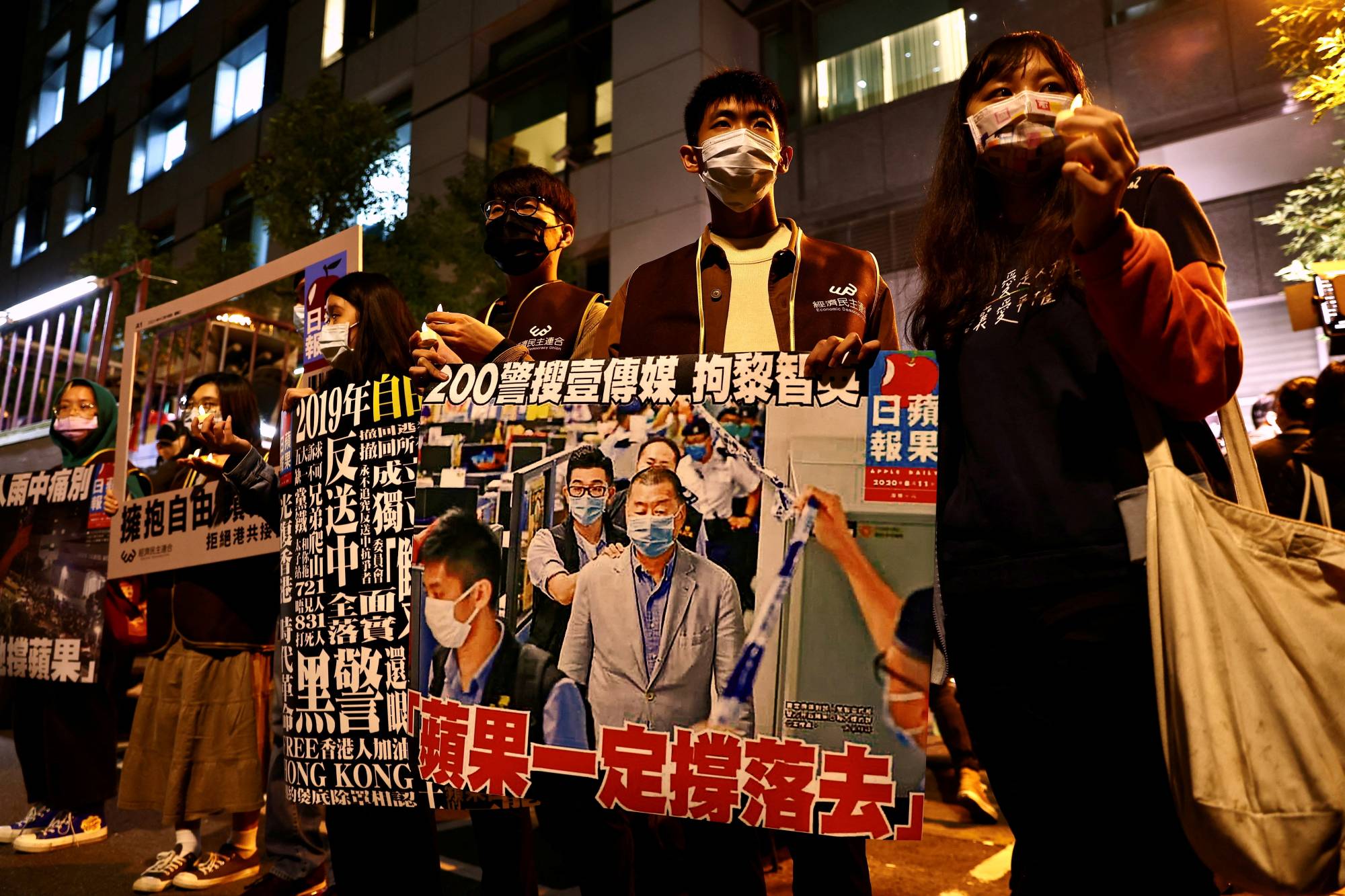The collapse of Hong Kong's last big pro-democracy news outlet, Stand News, caps one of the world's most dramatic declines in press freedom this year.
From the closure of Jimmy Lai's Apple Daily newspaper in July to the raid, arrests and asset seizures that precipitated Stand News's shuttering Wednesday, the global financial hub has gone from being one of Asia's most free-wheeling media markets to one of its most regulated. In addition to employing a national security law that carries sentences as long as life in prison, Hong Kong authorities have began charging journalists and internet users under a colonial-era sedition law that can jail a writer for up to two years.
While Hong Kong's crackdown is unique to events in the former British colony, where Beijing is eager to prevent a return of the mass democracy demonstrations of two years ago, similar changes were seen across the globe in 2021. Governments — threatened by pandemic-fueled economic upheaval and emboldened by former U.S. President Donald Trump's campaign against "fake news" — appear poised for more steps to silence critical coverage in the year ahead.



















With your current subscription plan you can comment on stories. However, before writing your first comment, please create a display name in the Profile section of your subscriber account page.